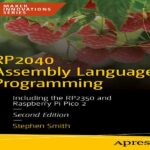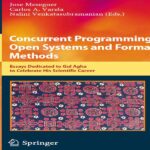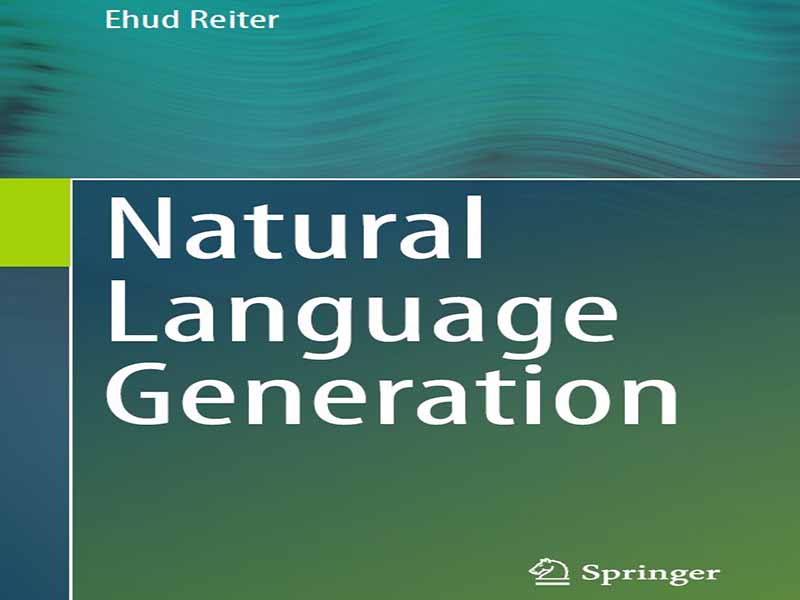- عنوان کتاب: Natural Language Generation
- نویسنده: Rajesh Kumar Chakrawarti
- حوزه: پردازش زبان طبیعی
- سال انتشار: 2025
- تعداد صفحه: 208
- زبان اصلی: انگلیسی
- نوع فایل: pdf
- حجم فایل: 5.40 مگابایت
من از سال ۱۹۹۰ که دکترای خود را در این زمینه گرفتم، روی تولید زبان طبیعی (NLG) کار کردهام، یعنی استفاده از تکنیکهای هوش مصنوعی برای تولید متون به زبان انگلیسی و سایر زبانهای انسانی. در اواخر سال ۲۰۲۲، NLG به دلیل قابلیتهای چشمگیر مدلهای زبانی بزرگ مانند ChatGPT که هیجانانگیز بود، بسیار برجستهتر شد. با این حال، بحثها در مورد NLG در محافل دانشگاهی و تجاری بر آخرین تحولات در مدلهای زبانی متمرکز شده است و توجه کمی به آنچه در مورد NLG قبل از ChatGPT آموخته شده است، شده است. هدف من در این کتاب ارائه یک مرور کلی گسترده از NLG است که در مورد مدلهای زبانی صحبت میکند، اما همچنین به رویکردهای جایگزین برای NLG، الزامات (آنچه کاربران میخواهند سیستمهای NLG انجام دهند)، ارزیابی، ایمنی و آزمایش و کاربردهای معقول NLG میپردازد. امیدوارم این دیدگاه گسترده، که بر اساس دههها کار روی NLG بنا شده است، برای محققان و توسعهدهندگانی که در این زمینه کار میکنند مفید باشد. من در سال ۲۰۰۰ کتابی در مورد NLG نوشتم و دیدم که اگرچه محتوای فناوری کتاب من در سال ۲۰۰۰ به سرعت قدیمی شد، اما مردم در سال ۲۰۱۰ و حتی ۲۰۲۰ به استفاده از آن ادامه دادند زیرا مطالب مفهومی و روششناختی سطح بالا هنوز مفید بودند. با توجه به این تجربه، این کتاب را بر مفاهیم و روشهای سطح بالا متمرکز کردهام. امید من این است که این مطالب در سال ۲۰۳۰ و شاید حتی ۲۰۴۰ نیز مفید باشند. من سعی نمیکنم جدیدترین فناوریها را توصیف کنم، زیرا این اطلاعات به سرعت قدیمی میشوند (در واقع، هر چیزی که در ژوئن ۲۰۲۴ بنویسم، احتمالاً تا زمان انتشار کتاب قدیمی خواهد بود). خوانندگانی که به آخرین تحولات در مدلهای زبانی علاقهمند هستند باید به جای دیگری مراجعه کنند. در بسیاری از جاها، خروجیهایی از ChatGPT و سایر مدلهای زبانی بزرگ را نشان میدهم. بیشتر اینها در سال ۲۰۲۳ تولید شدهاند (من عمداً شماره نسخه یا تاریخهای خاص را ذکر نمیکنم) و خوانندگان باید در نظر داشته باشند که مدلهای سال ۲۰۲۵، چه برسد به ۲۰۳۰، ممکن است خروجیهای متفاوتی تولید کنند. با این حال، نکات سطح بالایی که مطرح میکنم همچنان باید معتبر باشند.
I have been working on natural language generation (NLG), that is using artificial intelligence techniques to produce texts in English and other human languages, since I got my PhD in this area in 1990. In late 2022, NLG became much more prominent because of the impressive capabilities of large language models such as ChatGPT, which was exciting. However, discussions about NLG in both academic and commercial circles have become focused on the latest developments in language models, with little attention paid to what had been learned about NLG before ChatGPT. My goal in this book is to present a broad overview of NLG which talks about language models, but also looks at alternative approaches to NLG, requirements (what users want NLG systems to do), evaluation, safety and testing, and sensible applications of NLG. I hope that this broad perspective, which builds on decades of work on NLG, will be helpful to both researchers and developers who work in this area. I co-authored a book about NLG in 2000, and I saw that while the technology content of my 2000 book quickly became out of date, people kept on using it in 2010 and even 2020 because the high-level conceptual and methodological material was still useful. With this experience in mind, I have focused this book on high-level concepts and methodologies; my hope is that this material will still be useful in 2030 and perhaps even 2040. I do not attempt to describe the latest technologies, because this information quickly becomes dated (indeed, anything I write in June 2024 will probably be out-of-date by the time the book is published); readers interested in the latest developments in language models should look elsewhere. In many places I show outputs from ChatGPT and other large language models. Most of these were all produced in 2023 (I deliberately do not include version numbers or specific dates), and readers should bear in mind that models in 2025, let alone 2030, may produce different outputs. However, the high-level points I am making should still be valid.
این کتاب را میتوانید از لینک زیر بصورت رایگان دانلود کنید:
Download: Natural Language Generation





































نظرات کاربران